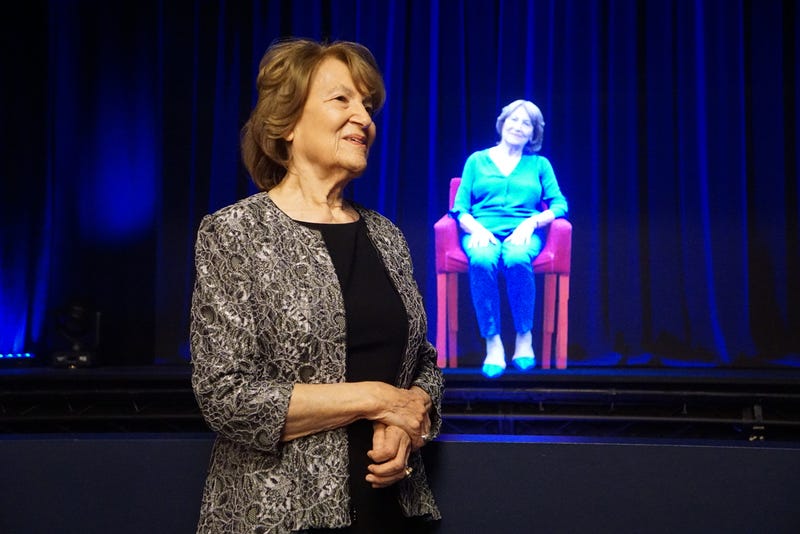
(WBBM NEWSRADIO) — Officials with the Illinois Holocaust Museum & Education Center in Skokie are mourning the loss of museum president Fritzie Fritzshall, a survivor of the Auschwitz-Birkenau concentration camp, who died over the weekend at age 91.
Fritzshall was a familiar figure in the Chicago region and at the history museum. In the 1970s, she was among several Skokie residents who pushed back when neo-Nazis sought to march in the northern suburb, which has a large Jewish population.
She helped start the Holocaust Memorial Foundation of Illinois, an effort that ultimately led to the world class museum that opened in 2009 in her adopted city. The Skokie site is the third-largest Holocaust museum in the world, and Fritzhall served as its president beginning in 2010.
“Fritzie was the heart and soul of our Museum,” Susan Abrams, CEO of Illinois Holocaust Museum & Education Center, said. “She played an important role in the Museum transforming from regional player to global leader."
Fritzshall was among several Holocaust survivors who exhaustively recorded their remembrances, which are shared via holographic images in an interactive exhibit in which visitors can "ask" questions of the subject.
"She saw the value of it," museum spokesperson Marcy Larson said Monday. "She was willing to go to Los Angeles, sit under hot lights for 40 hours, answer thousands of questions over four or five days in her same clothes."
The Nazis deported Fritzshall, a native of Klucharky, Czechoslovakia, and several of her family members to Auschwitz-Birkenau. She was 13 at the time.
“There is no way to describe what it was like to be in the rail car hungry, cold, without food, without water, watching pregnant women begging for water, watching different people dying in front of you from lack of food, air, and water,” Fritzshall once said. “My own grandfather died in this car going to Auschwitz.”
Of her family members who were imprisoned, only she survived. Fritzshall said telling her captors she was older helped keep her alive. Also instrumental were hundreds of women at the camp who literally shared their crumbs with the teen, hoping that one day she might tell their story, Larson said.
Fritzshall escaped into the forest during a death march and was liberated by the Soviet Army in 1945. She emigrated to Skokie in 1946 and reunited with her father, who had moved to the U.S. before the Holocaust.
Marrying a World War II veteran, Fritzshall became a hairdresser and Cubs fan.
Among those singing her praises over the weekend was Illinois Gov. JB Pritzker.
“‘One person can make a difference,’ she always said. Fritzie was that person who made a difference for many,” the governor said. “She embodied the decency and kindness she implored from others. She was strong and faithful and caring. A fundamentally good person is gone today. I miss her already, and I will never forget her.”

